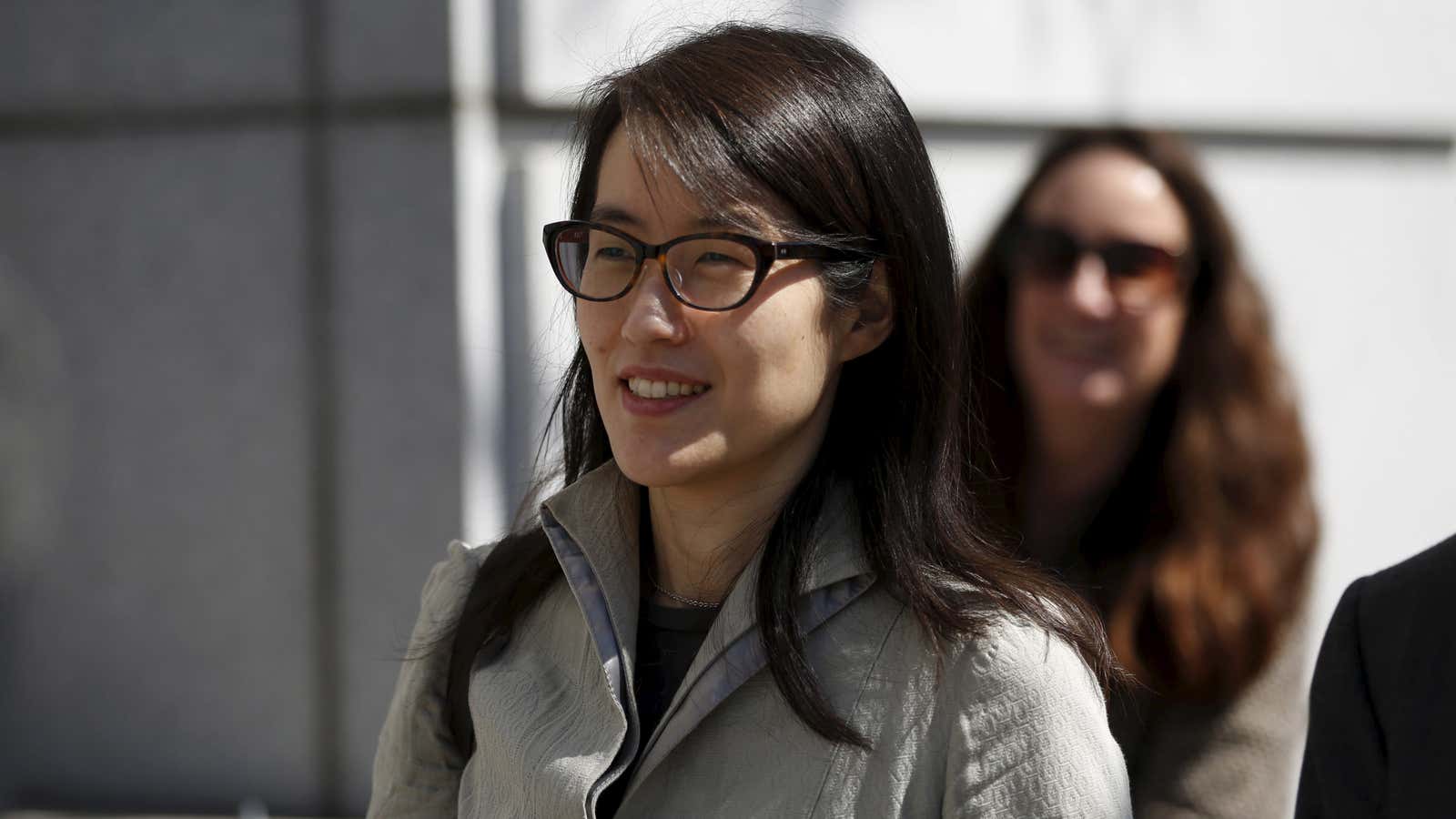Update (5:30pm ET): John Greathouse posted an apology for his column on Twitter earlier this afternoon. You can read it here.
California venture capitalist John Greathouse has some advice for women in tech: Only use your initials online. Not your full name, email address, LinkedIn profile, or Twitter handle that includes part of your name, and certainly not any photos.
“Women in today’s tech world should create an online presence that obscures their gender,” Greathouse, a partner at Rincon Venture Partners and “professor of practice” at UC Santa Barbara, writes in a column for the Wall Street Journal. ”A gender-neutral persona allows women to access opportunities that might otherwise be closed to them. Once they make an initial connection with a potential employer or investor, such women then have an opportunity to submit their work and experiences for an impartial review.”
It’s no secret that tech has a sexism problem. Last year saw Silicon Valley divided by the conclusion of Ellen Pao’s gender-discrimination suit against her former employer, VC firm Kleiner Perkins Caufield & Byers. (She lost.) A survey earlier this year found that 84% of women in tech had been told they were too aggressive, and 75% were asked about their marital status and children in interviews. The numbers on women in tech, while getting better, still aren’t great. And there are more than enough stories about women who have felt trivialized or outright harassed by their male colleagues.
Greathouse argues that women can help avoid gender biases—conscious or unconscious—by hiding their more female characteristics from an online persona or resume:
I would suggest that if you are a woman raising capital, you might consider not including photos of your team in your pitch deck. If you identify your team via their initials (men and women), you effectively strip out all preconceptions related to race, ethnicity and gender. In your LinkedIn profile, Twitter account, email address and online correspondence use your initials (or a unisex name) and eliminate photos.
He has data to back this up:
In one study, 56% of the subjects were twice as likely to complete a survey sent by someone with a name similar to their own, versus 30% of the subjects in the control group. A man will not feel such inherent “liking” from a female name, unless the female entrepreneur happens to use a unisex name.
But his column misses the point. It asks women to solve a problem they didn’t create by concealing an inconcealable part of their identity. It implies that, fundamentally, tech will always be biased against women, men will always prefer people of their own gender, and that nothing can be done to fix this. So long as that’s the attitude among enough people with money and power in the tech industry, the odds are nothing will.
